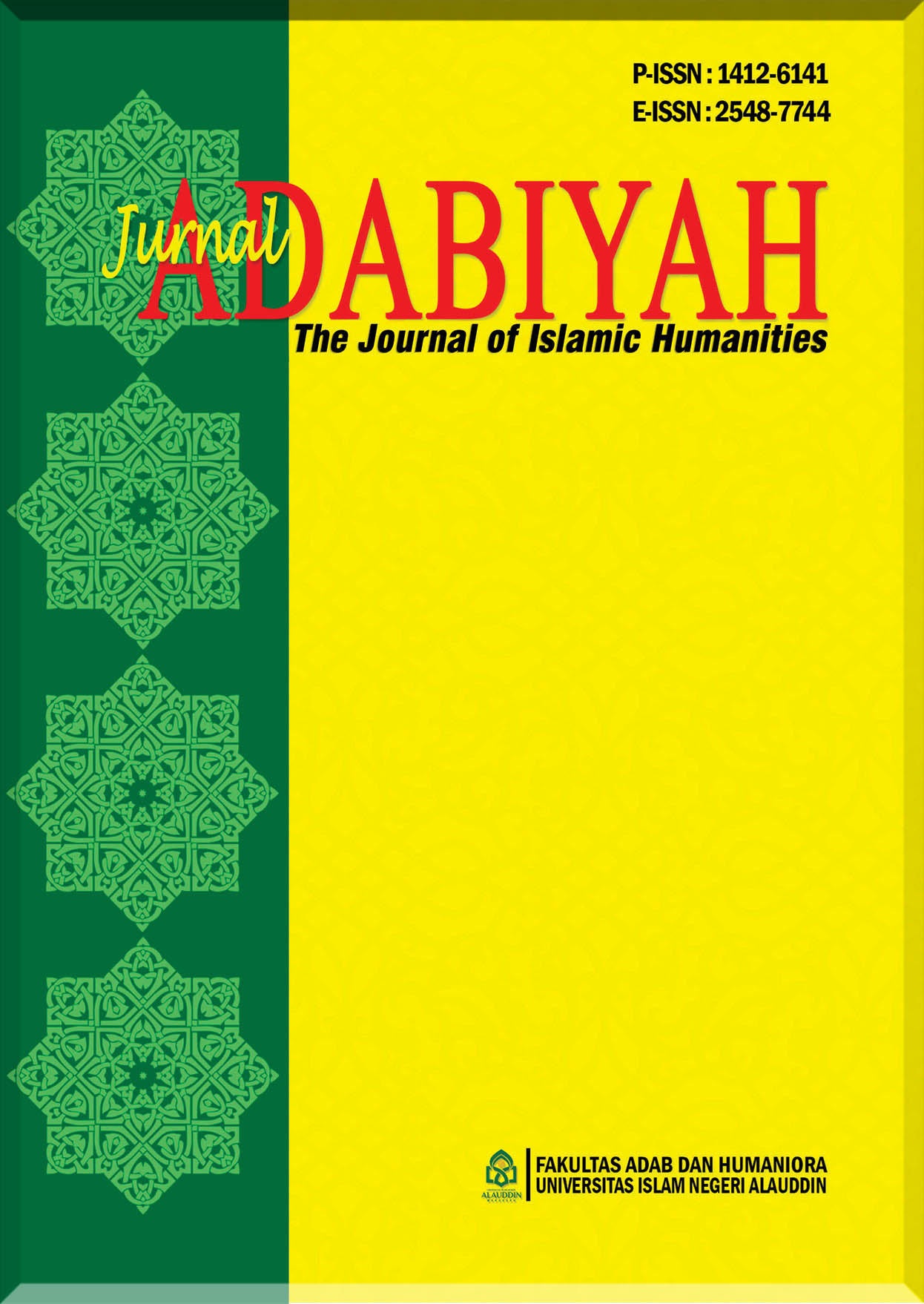Bahasa Arab di Indonesia (Studi tentang Pengaruh dan Prospeknya)
Abstract
Artikel ini bertujuan untuk mengungkapkan jejak-jejak substansial yang memungkinkan pelacakan pengaruh bahasa Arab di Indonesia, dengan maksud untuk memperoleh gambaran prospek di masa yang akan datang. Jenis penelitian ini menggunakan pendekatan reflektif, meskipun tetap diupayakan berpijak pada data empiris dan fenomenologis. Mula-mula dikemukakan di mana dapat diperoleh jejak penyebaran bahasa Arab di Kepualauan Nusantara, selanjutnya diluas apa keutamaan dan pada aspek-aspek apa pengaruh itu terintegrasi, serta bagian akhir dikemukakan prospek di masa yang akan datang. Hasil penelitian menunjukkan bahwa peranan bahasa Arab di Indonesia tetap berpijak pada esensinya, tetap pada suatu garis kesinambungan, antara masa lalu, sekarang dan prospek kedepannya. Meskipun memang terlihat pada beberapa bidang pengaruh itu redup, tapi pada beberapa bidang tertentu, khususnya yang terkait dengan bidang keagamaan, perkembangan dan prospeknya cukup cerah dikarenakan esensinya terjamin dalam konstitusi Indonesia.Downloads
Downloads
How to Cite
Issue
Section
License
COPYRIGHT AND LICENSE STATEMENT
COPYRIGHT
Jurnal Adabiyah is published under the terms of the Creative Commons Attribution license. Authors hold the copyright and retain publishing rights without restriction to their work. Users may read, download, copy, distribute, and print the work in any medium, provided the original work is properly cited.
LICENSE TO PUBLISH
1. License
The use of the article will be governed by the Creative Commons Attribution license as currently displayed on http://creativecommons.org/licenses/by/4.0.
2. Author’s Warranties
The author warrants that the article is original, written by stated author/s, has not been published before, contains no unlawful statements, does not infringe the rights of others, is subject to copyright that is vested exclusively in the author and free of any third party rights, and that any necessary written permissions to quote from other sources have been obtained by the author(s).
3. User Rights
Under the Creative Commons Attribution license, the users are free to download, reuse, reprint, modify, distribute and/or copy the content for any purpose, even commercially, as long as the original authors and source are cited. No permission is required from the authors or the publishers.
4. Co-Authorship
If the article was prepared jointly with other authors, the corresponding author warrants that he/she has been authorized by all co-authors, and agrees to inform his/her co-authors of the terms of this statement.
5. Miscellaneous
Jurnal Adabiyah may conform the article to a style of punctuation, spelling, capitalization, and usage that it deems appropriate. The author acknowledges that the article may be published so that it will be publicly accessible and such access will be free of charge for the readers.



